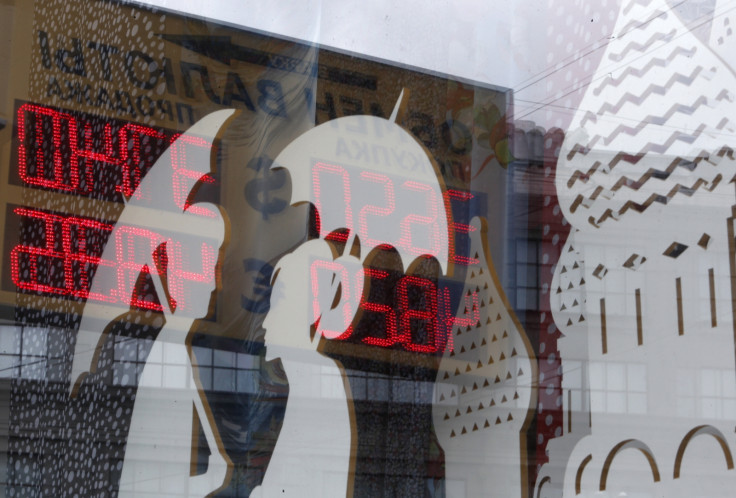Russian Ruble Steadies as Government Announces First Forex Auctions in November

The Russian finance minister has announced that the country's first foreign currency deposit auctions will take place in early November.
The auctions are designed to ease pressure on the country's ruble, which – after reaching record lows last week – has steadied this morning (22 October).
The ruble opened up 0.4% on the RTS index – which is dollar-denominated – and 0.3% on the ruble-denominated Micex.
This is despite the failure of Russia and Ukraine to reach a gas deal and just a day after Russia's credit rating was cut to Baa2 – just one notch above the lowest investment grade by Moody's. The downgrade follows a similar move by the Standard and Poor's ratings agency, which cut Russia's credit rating to BBB- in April.
The foreign currency auctions will see $50bn (£31bn, €39bn) pumped into Russia's banking sector over the 12 months from November. It had initially been thought that the auction would begin on 29 October, with forex repos – a form of short-term borrowing for dealers in government securities – being sold on one-week and one-month maturities to banks.
Anton Siluanov has now clarified that the first auction will take place at the beginning of November. Explaining the purpose of the auction to reporters in Moscow last week, Siluanov said: "Such foreign currency auctions will be held in the nearest future as enough foreign currency funds have accumulated on the Treasury's accounts. We will provide liquidity to banks, holding deposit auctions not only in rubles."
The recent fall in oil price has underlined the perils of Russia's over-reliance on its energy sector
Analysts have previously warned that the measures will not be enough, since the auctions will be capped at $3.5bn per week, despite the private sector facing external debt servicing costs of more than $170bn between November this year and Q1 2016.
The devaluing of the ruble – which, despite steadying, has still lost almost 20% of its value against the dollar this year – has been accentuated by the ban on Russian companies which are majority government-owned from raising finance on the European capital markets.
Many of these companies' western debt is due to mature over the next 12 months. The government financing the country's banks is an effort to extend credit to the corporate sector.
The plummeting price of oil has hammered the issue home, with analysts warning that the low level of investment in other sectors has exposed Russia's dependence on oil. Russia's investment rate equated to just 20% of GDP last year.
"The recent fall in oil price has underlined the perils of Russia's over-reliance on its energy sector and the corresponding need to develop non-energy sources of growth. Part of the route back to economic vigour is an increase in Russia's overall investment rate. But just as important is the need to rebalance investment away from the natural resource sector, which currently dominates, and towards manufacturing," wrote Liza Ermolenko, emerging markets economist at Capital Economics, in a note this morning.
© Copyright IBTimes 2025. All rights reserved.





















